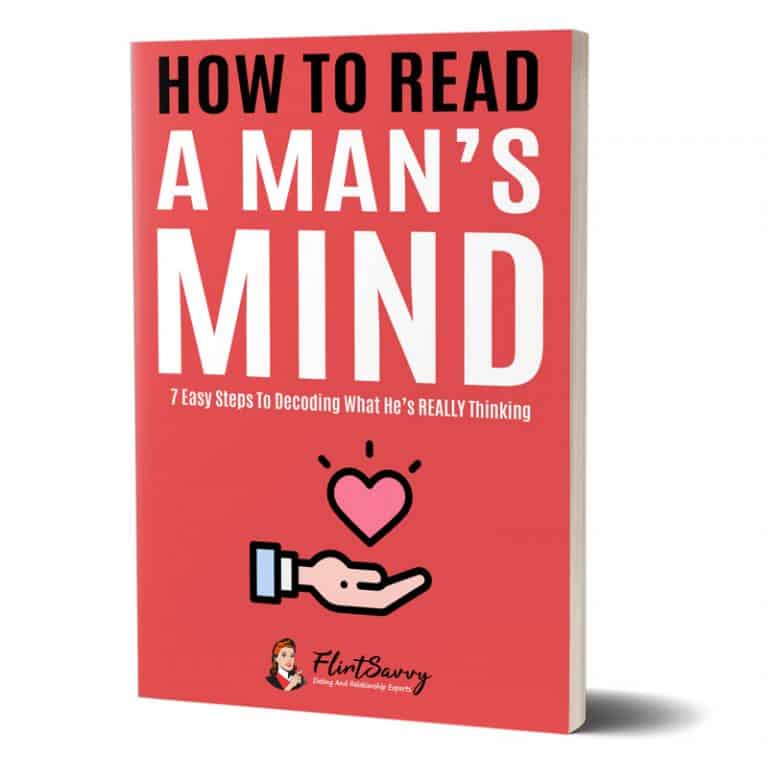Love can be a complicated emotion, and sometimes it can make us act in ways that we don’t fully understand.
Have you ever found yourself being mean to your boyfriend for no apparent reason? Maybe you’ve lashed out at him over something small, or you’ve been hyper-emotional and impatient when you’re together.
It’s not uncommon to feel this way, but it’s important to understand why it’s happening. In this article, we’ll explore some of the reasons why you might be mean to your boyfriend and provide some tips on how to improve your relationship.
So, take a deep breath and let’s dive in.
Why Am I Mean To My Boyfriend?
There are several reasons why you might be mean to your boyfriend, and it’s important to identify the root cause so that you can work on improving your behavior.
One reason could be that you’re dealing with stress or anxiety in other areas of your life, and you’re taking it out on your boyfriend. When we’re stressed, we can become highly emotional and prone to lashing out. If this is the case for you, it’s important to find healthy ways to manage your stress, such as exercise or meditation.
Another reason could be that you have unresolved emotional triggers from past experiences, such as childhood trauma or past relationships. These triggers can cause intense emotional reactions that are often directed at those closest to us. If this is the case, it may be helpful to seek professional help to work through these issues.
If you’ve experienced childhood sexual abuse, you may be at a higher risk of developing borderline personality disorder, which can cause emotional dysregulation and a tendency to overreact to perceived rejection. In this case, it’s important to seek professional help to manage your symptoms and work on building healthy relationships.
Finally, it’s possible that you’re simply afraid of losing your boyfriend and are trying to gain control of the situation by pushing him away. This fear can stem from past experiences of being hurt or abandoned. In this case, it’s important to remind yourself that you can’t control everything in your life and that trust is a crucial part of any relationship.
The Impact Of Past Relationships On Current Behavior
Our past experiences, particularly in past relationships, can have a significant impact on our current behavior in relationships. One common phenomenon is repetition compulsion, where we unconsciously repeat behaviors to make up for the failures of our previous relationships. This can lead to patterns of behavior that are unhealthy and damaging to our current relationships.
Childhood experiences also play a crucial role in shaping our approach to relationships. Insecure attachment patterns established in early childhood can continue to function as a working model for relationships in adulthood. For example, people with an anxious attachment style may be insecure about their relationships and constantly seek validation from their partners, leading to clingy behavior and anxiety when their partner doesn’t respond immediately.
Past trauma, such as childhood abuse or past relationship trauma, can also have a lasting impact on our behavior in relationships. Emotional triggers from these experiences can cause intense emotional reactions that are often directed at those closest to us. It’s important to seek professional help to work through these issues and develop healthy coping mechanisms.
Finally, retroactive jealousy and comparing ourselves to our partner’s exes can also impact our current behavior in relationships. Obsessing over the past relationship or feeling jealous of an ex can lead to unhealthy behavior that is damaging to the current relationship.
Unresolved Personal Issues And How They Affect Your Relationship
Unresolved personal issues can have a significant impact on your relationship with your boyfriend. When you have unresolved problems in your personal life, it can consume your thoughts and emotions, making it difficult to have a steady flow of communication with others. This can lead to a breakdown in communication with your partner, causing misunderstandings and misinterpretations.
In a relationship, unresolved issues often lead to negative beliefs and ‘hot thoughts’ about each other and the relationship. These beliefs can be detrimental to the relationship, leading to feelings of distrust, resentment, and fear. If left unaddressed, they can cause irreparable damage to the relationship.
If you tend to push down your feelings of hurt or disappointment, it’s important to recognize that this can do more harm than good. It’s essential to feel your emotions and let them unfold naturally, as they hold valuable information about what you need or the direction you need to take. Pushing them down can toughen your emotional armor, harden you, and reduce your capacity to connect with others.
Moreover, if you have unresolved issues from your childhood or past relationships, these can trigger intense emotional reactions that are often directed at those closest to you. These unresolved issues can cause deep-rooted emotional wounds that may require professional help to heal.
It’s crucial to be self-aware and identify where the breakdown of communication occurs in your relationship. Awareness is always the first step in making sure that issues can be resolved. Couples should practice self-awareness when having an argument and identify where the breakdown of communication occurs so that they can work together to find solutions.
Communication Breakdown: How Misunderstandings Lead To Meanness
One major reason why misunderstandings can lead to meanness in a relationship is due to a breakdown in communication. When two people are discussing something, it’s important that both parties are actively listening and understanding what the other person is saying. However, if one person is not fully engaged in the conversation, they may miss key points or misinterpret what their partner is saying. This can lead to frustration and anger, which can then be directed towards their partner.
Another factor that can contribute to communication breakdown is the inability to express one’s thoughts and intentions effectively. Sometimes, a person may know what they want to say but struggle to articulate it clearly. This can lead to confusion and misunderstandings, which can then result in meanness towards their partner.
In addition, unresolved emotional triggers from past experiences can also contribute to communication breakdown and meanness in a relationship. If someone has experienced trauma or abuse in the past, they may have difficulty trusting others or expressing their emotions. This can lead to misunderstandings and hurtful behavior towards their partner.
It’s important to address these communication breakdowns and work on improving communication skills in order to prevent meanness in a relationship. This may involve seeking professional help or practicing active listening and effective communication techniques. By addressing these underlying issues, couples can build stronger, healthier relationships based on trust and understanding.
The Importance Of Self-Care And Self-Reflection In Maintaining A Healthy Relationship
Maintaining a healthy relationship requires effort and commitment from both partners. One crucial aspect of this is prioritizing self-care and self-reflection. Self-care involves taking care of your physical and emotional needs, such as getting enough sleep, eating well, and engaging in stress-relieving activities. When you prioritize self-care, you’re better equipped to handle difficult situations and emotions in your relationship.
Self-reflection involves taking the time to understand your own thoughts, feelings, and actions. It’s important to regularly check in with yourself to evaluate how you’re feeling and how your behavior may be affecting your relationship. By practicing self-reflection, you can gain insight into your own needs and emotions, which can help you communicate more effectively with your partner.
Self-care and self-reflection also go hand-in-hand. When you take care of yourself, you’re better able to reflect on your own behavior and make positive changes. Similarly, when you reflect on your actions and emotions, you can identify areas where you need to prioritize self-care.
Incorporating self-care and self-reflection into your daily routine can help strengthen your relationship with your partner. By taking care of yourself physically and emotionally, you’ll be better equipped to handle the ups and downs of a relationship. By reflecting on your own behavior and emotions, you’ll be able to communicate more effectively with your partner and build a stronger connection.
Strategies For Dealing With Mean Behavior In Relationships
If you find yourself being mean to your boyfriend, it’s important to take steps to address the behavior and improve your relationship. Here are some strategies that can help:
1. Identify the triggers: Try to identify the situations or events that trigger your mean behavior. This can help you understand what’s causing your reactions and give you a chance to prepare for them.
2. Take a break: If you feel yourself getting angry or upset, take a break from the situation. This can give you time to calm down and think about how you want to respond.
3. Communicate effectively: Instead of lashing out, try to communicate your feelings in a calm and respectful manner. Use “I” statements to express how you feel, rather than blaming or attacking your partner.
4. Practice empathy: Try to put yourself in your partner’s shoes and understand their perspective. This can help you see things from their point of view and reduce conflict.
5. Seek professional help: If you’re struggling with unresolved emotional issues or mental health concerns, it may be helpful to seek professional help from a therapist or counselor. They can provide guidance and support as you work through these issues.
Remember, being mean to your boyfriend is not healthy or productive for your relationship. By taking steps to address the behavior and improve communication, you can build a stronger and more fulfilling relationship with your partner.
Seeking Professional Help: When To Consider Therapy For Relationship Issues
If you find that your mean behavior towards your boyfriend is causing strain in your relationship, it may be time to consider seeking professional help. Relationship counseling can be a helpful tool for couples who are struggling to communicate effectively and work through conflicts.
Therapy can also be beneficial for individuals who are experiencing emotional dysregulation or have unresolved trauma from past experiences. A therapist can provide a safe and supportive environment for you to explore these issues and work towards healing and growth.
It’s important to note that therapy isn’t just for couples in crisis or individuals with diagnosed mental health conditions. Many people seek therapy for everyday concerns, such as relationship problems or job stress. If you’re feeling overwhelmed or stuck, therapy can provide you with an outside perspective and expert guidance to help you make positive changes in your life.
When choosing a therapist, it’s important to find someone who you feel comfortable with and trust. Look for a therapist who has experience working with relationship issues and has strong interpersonal skills. Online therapy platforms like BetterHelp offer convenient and affordable options for finding a qualified therapist who meets your needs.
Remember, seeking professional help is a sign of strength, not weakness. It takes courage to recognize when you need support and take steps towards improving yourself and your relationships.






